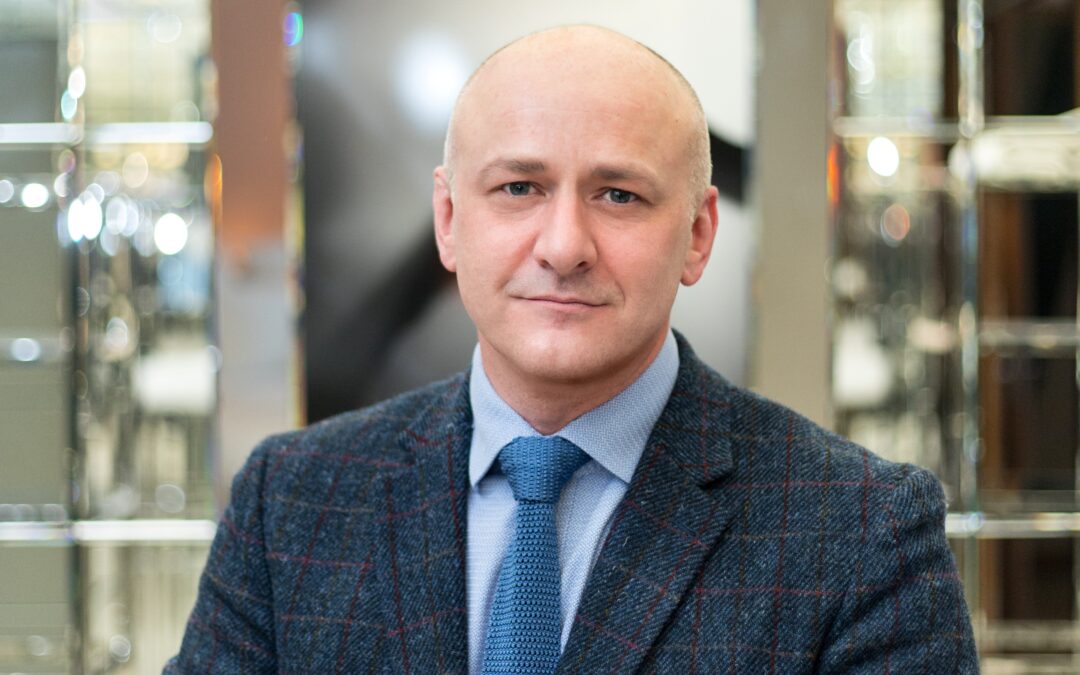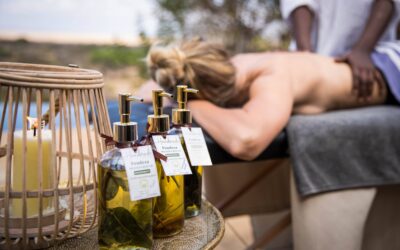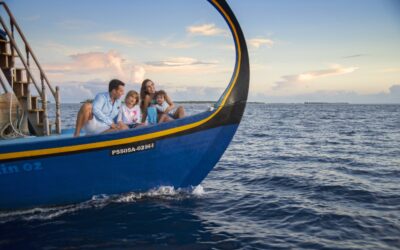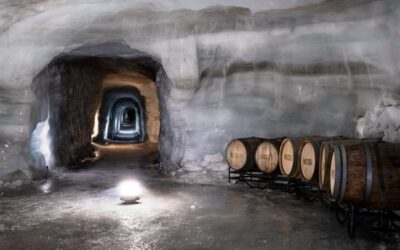Emlyn Brown is the Global Vice President, Well-Being Accor. He is responsible for the global well-being strategy at Accor, including the integration of wellness offerings throughout the customer journey at the Group’s brands and hotels. A British national who is fluent in German, Emlyn studied at The University of Salford in Leisure & Sport Management and holds an International Baccalaureate from Munich International School.
Emlyn has more than 25 years of experience in health and well-being. Prior to joining Accor in 2018, Emlyn spent a decade working in spa and well-being consultancy, in Thailand for seven years and then in China for three years. He consulted for two companies – Resense Spa and GOCO Hospitality – working with owners, designers, developers, and global brands to develop and design well-being concepts alongside financial feasibility studies. Before that, Emlyn worked for Six Senses as operations director in Asia; with Jumeirah hotels based in Dubai; as well as in the health club industry, and as an asset manager.
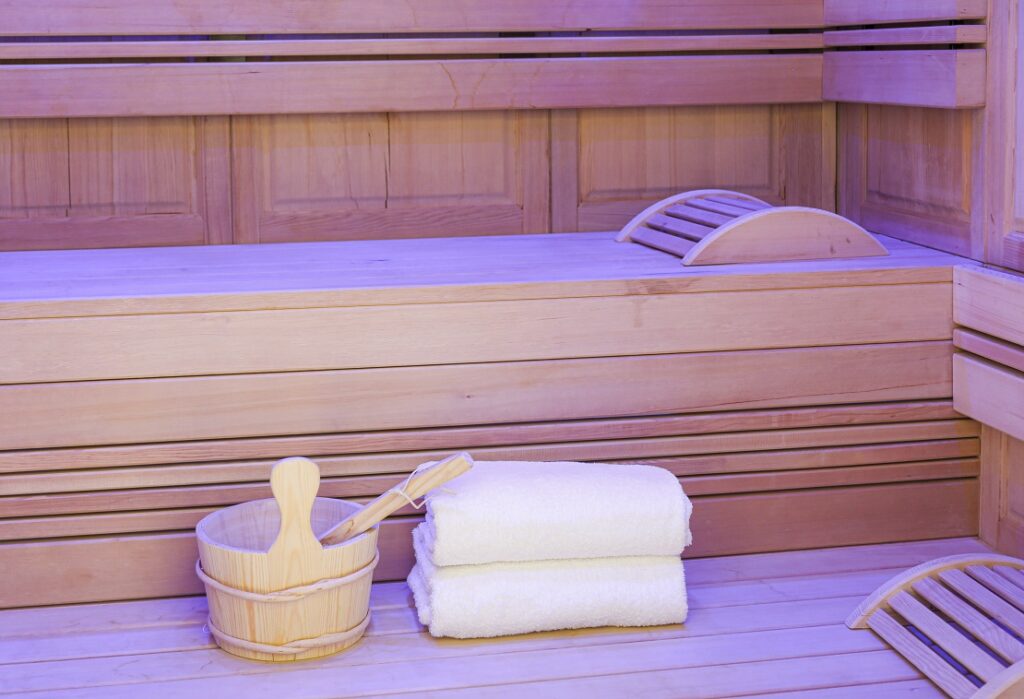
Le Royal Monceau – Raffles Paris © Karine Bouvatier
Today, as Global Vice President of Well-Being for Accor, Emlyn oversees all brands in the Accor portfolio. With his team, Emlyn focuses on three specific elements: First, working with the brand leadership to define and create a wellness strategy for each of the brands. This involves looking at different ways to deliver wellness experiences to guests based on demographics, locations, brand characteristics, and segments – all supported by Accor’s six pillars of well-being to create content strategies, event execution, and activations. Secondly, Emlyn works with the design and development team to create hotels with spaces that are attuned to guests’ well-being – realizing spa, wellness and fitness spaces that are in tune with their locations and in alignment with the relevant brand.
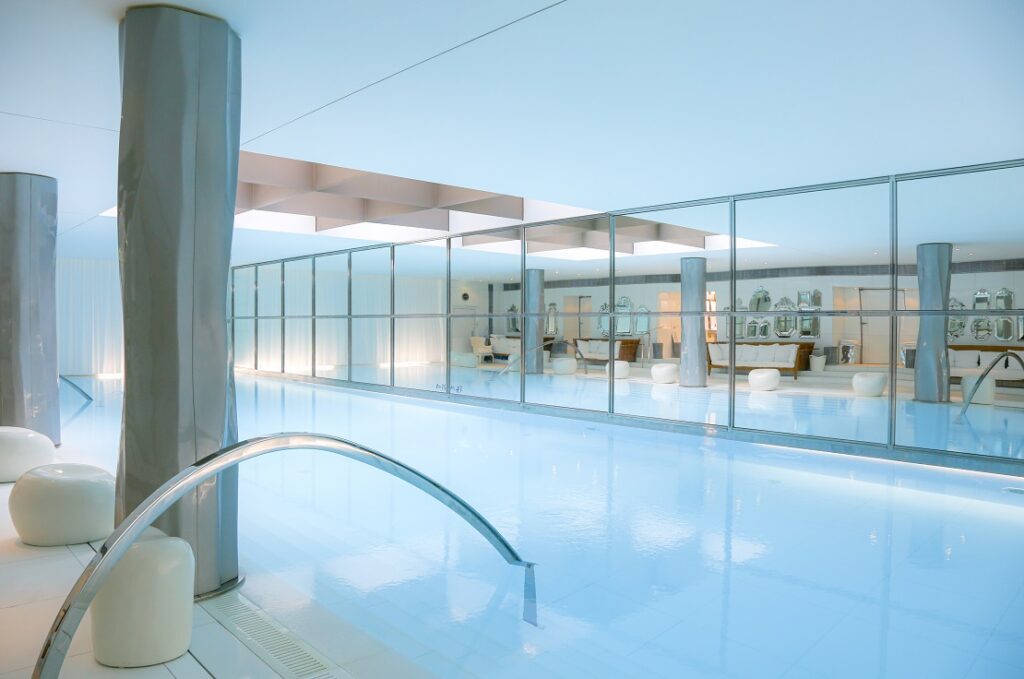
Le Royal Monceau – Raffles Paris © Karine Bouvatier
Last, but certainly not least, Emlyn strives to make wellness a company imperative. This involves connecting with some 230,000 colleagues, while driving external thought leadership to elevate wellness within the hospitality industry – pushing the boundaries and the conversation about the evolution and the impacts of well-being. Recent examples of Emlyn’s leadership in this area include Accor’s recently released Health to Wealth series and a white paper on the ROI of Wellness.
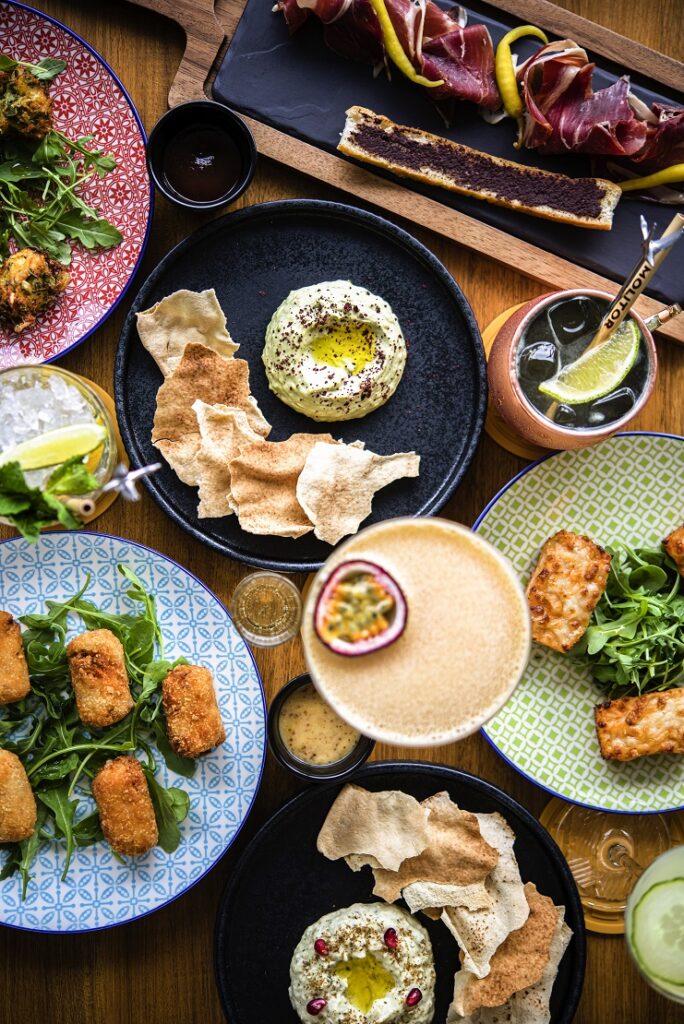
Hôtel Molitor Paris – MGallery © Geraldine Martens
WHAT DO YOU LIKE AND DISLIKE ABOUT BEING A HOTELIER/WELLNESS EXPERT?
What I most enjoy is meeting people, traveling and creating experiences for guests that enhance their health and well-being. My role, at the intersection of hospitality and wellness, permits me to do all three of those things in a very fun, dynamic and engaging way. Hospitality and wellness are both positive and growing industries designed to serve and support people, which I find incredibly gratifying. There is also a genuine camaraderie in hospitality. We work very hard, with long hours, particularly at an operational level, but the deep and lasting friendships we make are very rewarding, in our opportunities to meet people of different nationalities, and in our exposure to so many different cultures. I feel very fortunate that I have experienced the world in such a rich and multifaceted way throughout my career, and from my perspective, there is no downside.
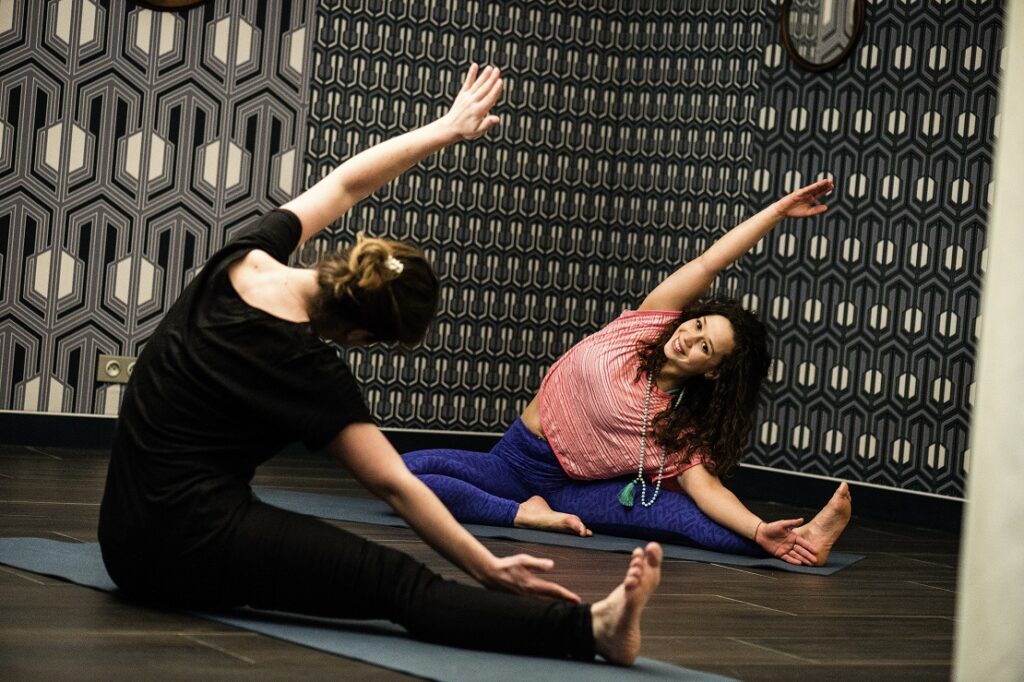
Hôtel Molitor Paris – MGallery © Sebastien Giraud
WHAT ARE SOME OF THE LATEST TRENDS IN WELLNESS?
The biggest trend is what I call the super acceleration of well-being – the en masse adoption of well-being practices in a post-covid landscape. People have come to truly appreciate that ‘health is wealth’ and that measuring and improving one’s health is perhaps the most valuable form of wealth. This is now very much at the forefront of consciousness, across all demographics and countries.
As a result, people are more actively investing in themselves. As difficult as the challenges during lockdown were, many people were able to use this time to rediscover previous passions, hobbies and start new well-being practices – such as cooking, nutrition, yoga, meditation, or even just taking more long, country walks. Collectively, we’re now seeing stronger adoption and continuation of wellness and well-being habits – and that’s a positive thing.
At Accor, we do not consider wellness itself as a trend, but rather a movement that has evolved over thousands of years. The ancient practice of searching for improved well-being perhaps originates with Ayurveda, TCM, bathing rituals, the many forms of meditation, and so on. This is not new. What is new, is that we are now seeing that super adoption of it.
Amid this massive wave, there are three areas where people are paying the most attention. First, nutrition is key – people are especially interested in topics such as gut health, and its link to health throughout the body, including the brain and immunity. Secondly, we are experiencing a dramatic acceleration in the use of digital technology to support wellness and well-being. For example, our hotels have introduced Hyperice, pneumatic massage guns, digital fitness class experiences, and apps for meditation. Third, discussions around mental health and mental well-being have massively progressed over the past few years and people, as well as the corporate world, are much more open today about supporting one another and finding ways to reduce stress and anxiety through wellness and mindfulness practices.
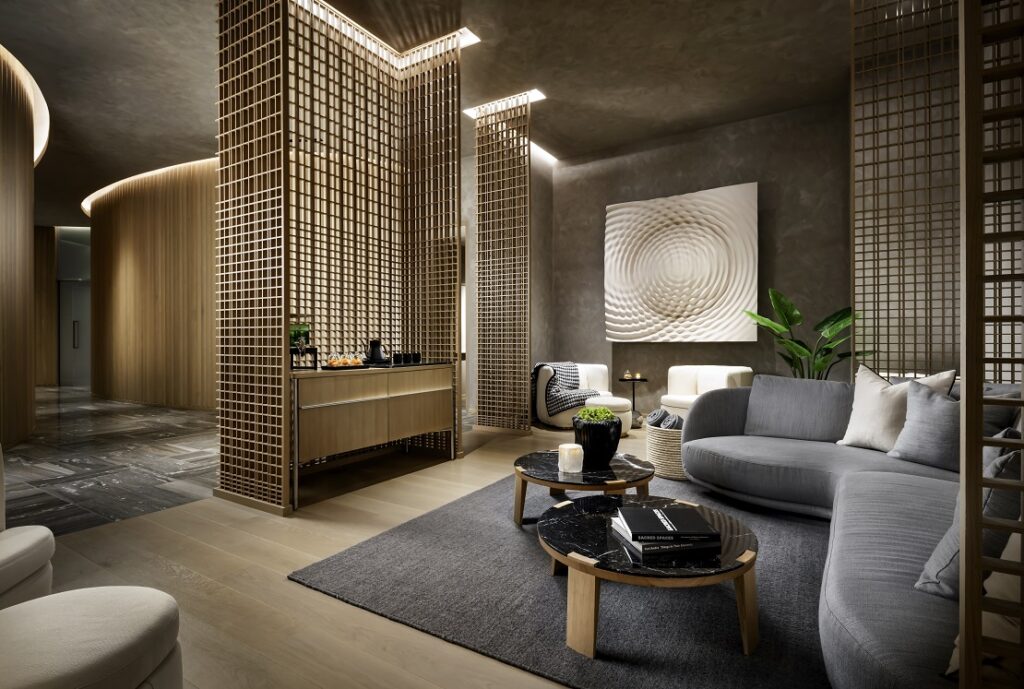
Fairmont Century Plaza © Brandon Barre
HOW DO YOUR THERAPISTS SUGGEST TREATMENTS AND THERAPIES TO YOUR GUESTS?
The key is to get that match – finding the right benefits of a treatment or therapy that will most closely align with the desired outcome of the guest. To get this right, our therapist or reception teams must have a thorough understanding of the benefits and features of all the treatments we offer. This also requires our people to have a genuine interest in understanding our guests – to be naturally inquisitive and intuitive to their needs. This is the case throughout hospitality, whether in F&B or front office, and certainly to a high degree in spa because it is the physical delivery of a holistic experience delivered by a specialist.
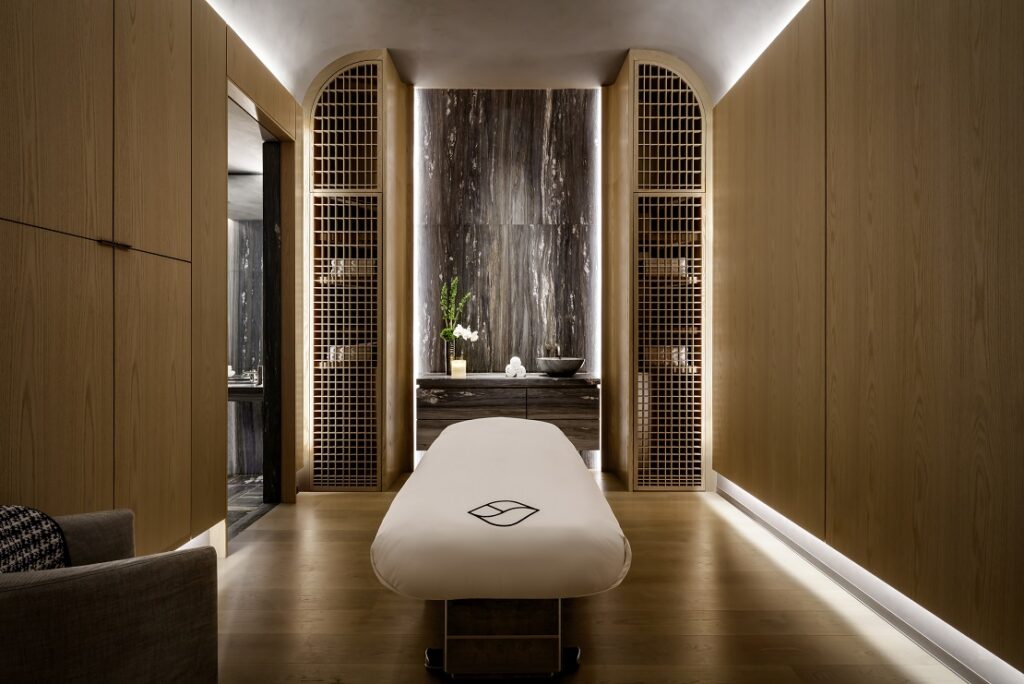
Fairmont Century Plaza © Brandon Barre
As the guest progresses through the treatment, through physiology and experience, the therapist must work through a sort of trifecta of thought processes: How do I adapt the treatment to meet the individual needs of this guest? What recommendations can I offer for at-home practices or retail solutions to support the work we’ve done? And finally, are there recommendations for follow-up, such as ongoing treatments, based on what they felt and observed? It’s very much a process of discovery and collaboratively finding the right solutions for each guest.
HOW HAS THE PANDEMIC AFFECTED YOUR WORK? AT WORK, WHICH IS YOUR MOST CHALLENGING ACTIVITY AND WHY?
Naturally, our industry, like many, was impacted during the pandemic. Yet we use these times to learn, to improve, and to reach out to those in need. While our usual business was put on hold, we were able to use our resources positively – pivoting hotel teams to help service and support field hospitals, providing assistance to our employees, and helping our communities with food, supplies, and donations.
While I certainly did miss traveling, I’ve rediscovered a balance in relation to the amount of traveling I was doing previously versus what I plan to do in the future. That is a positive outcome for me, physically, mentally, emotionally, and it’s also good for the environment.
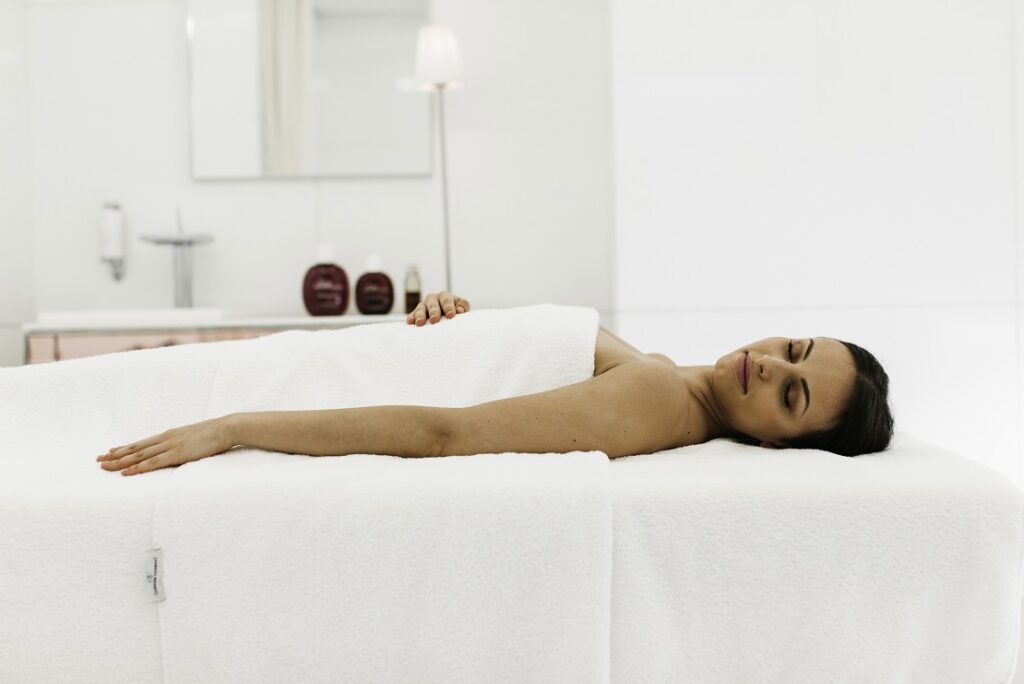
Le Royal Monceau – Raffles Paris © Zoe-Fidji Schmidmaier
Now that we are in a phase of rebounding, people are similarly making more conscious choices about when and how they travel. Our consumer insights and data shows that guests are planning to spend longer amounts of time at their destinations, perhaps out of a desire to absorb that location in a deeper way. We are calling this, slow travel. Much like the slow food movement, we believe that more than ever, the journey is the destination.
Meanwhile, we are re-prioritizing how we deliver wellness experiences to our guests. There has been a vast amount of new products, ideas and concepts coming out of the pandemic, and our challenge as wellness leaders is to choose wisely; to keep our feet on the ground when it comes to shaping a long-term wellness strategy that is based on strong efficacy and strong outcomes.
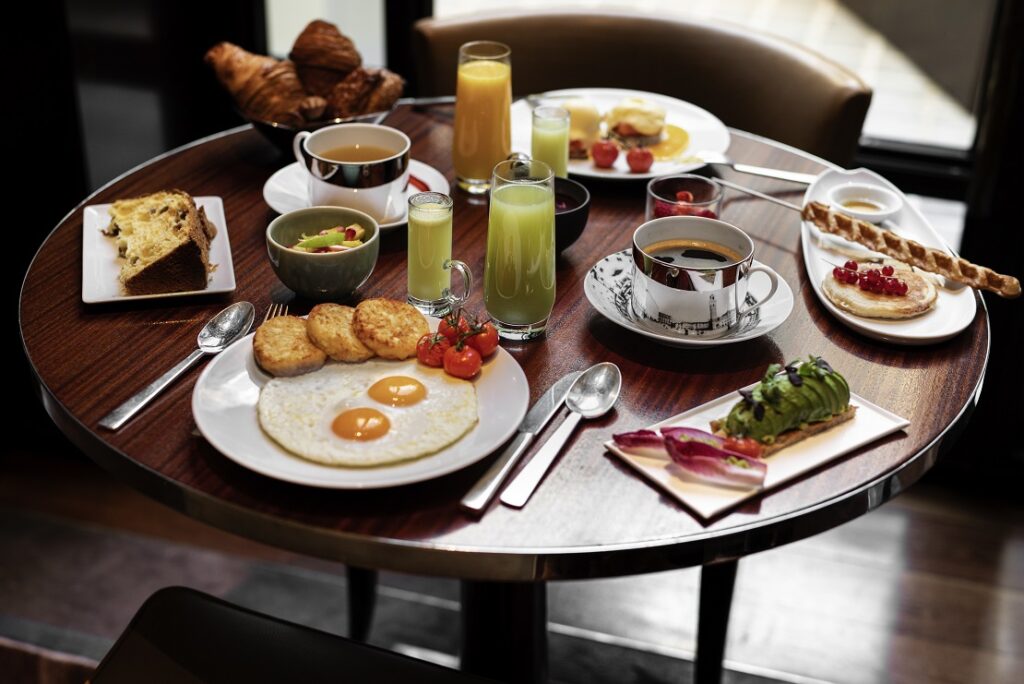
Le Royal Monceau – Raffles Paris © Pepa Sion
WHO OR WHAT HAS BEEN YOUR INSPIRATION FOR A CAREER IN WELLNESS?
My inspiration every day is the pure enjoyment of interacting and engaging with people and helping them advance their well-being. I’m grateful to have worked with numerous mentors and individuals throughout my career in wellness and hospitality, all of whom have been demanding, guiding, supportive, and constructive.
I feel fortunate to be in a global role as well. The desire to see the world was very much implanted in me at an early age. Fortunately, I was able to do just that while developing my career. I was greatly inspired by my father’s career, which required constant traveling. Growing up, I must have attended 11 schools in 18 years – that was normal for me. Yet, being educated at The International School, I was surrounded by 30 different nationalities and cultures, which shaped my openness to the world and led to my genuine interest in meeting people. My parents also instilled in me the values that have helped so much throughout my career – encouraging me to be independent and strong, to be adventurous, and to be curious – and for that I give them my greatest thanks.
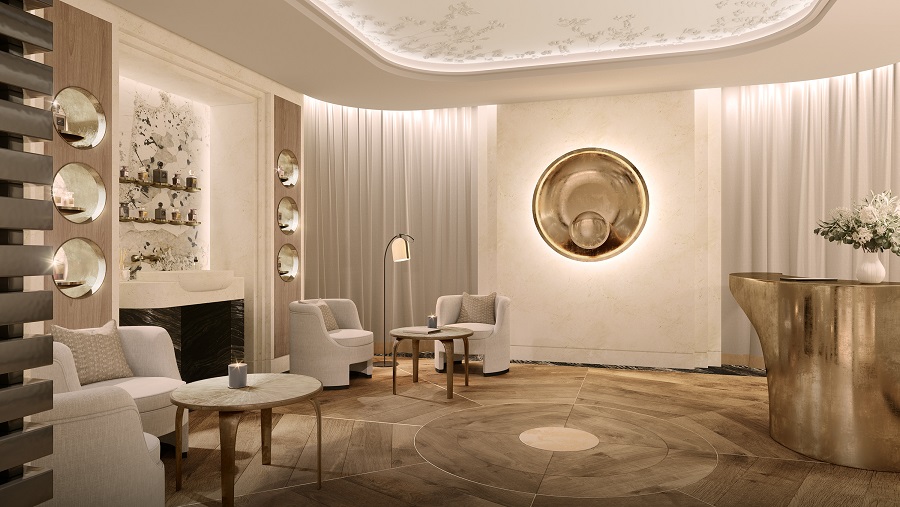
Raffles London at The OWO
WHAT ARE THE MOST ESSENTIAL SKILLS AND QUALITIES REQUIRED BY A WELLNESS EXPERT?
The first thing is that you must jump out of bed everyday wanting to meet people. The minute you stop wanting to do that, you should consider a switch in careers. You must be really passionate about engaging, helping, and supporting people.
Second, curiosity is key. You need a thorough depth of understanding in your area of expertise. Whether it’s fitness, nutrition, treatment delivery or something else, you’ve really got to know your stuff and keep it relevant. This requires curiosity – in terms of your education and in terms of the needs of your customers and guests.
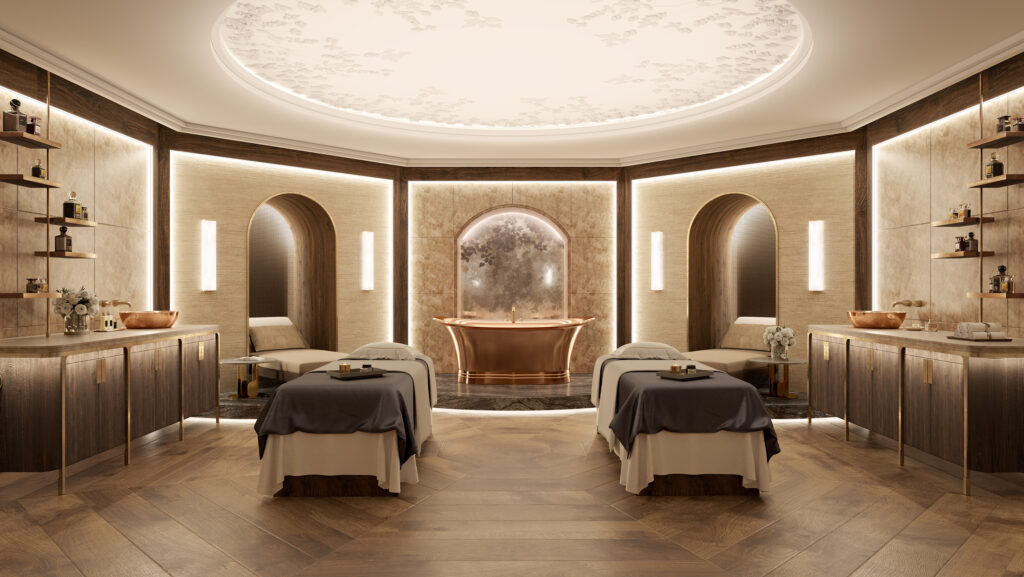
Raffles London at The OWO
Third, a mindset that is open to change can help you expand your expertise into new areas. The wellness industry may be ancient, but it is rapidly advancing now, and it is important to see opportunities to innovate and stay relevant. The ability to inform your work with different modalities also contributes to a more holistic view, which is always helpful.
Most importantly, you need to be a great communicator – and good communication is mostly about listening. Our job comes down to listening to the needs of our guests. We listen to their desires, their demands, and their expectations, then we align our delivery to support that outcome. We are here to deliver a guest experience that surpasses expectations – and that will always be based on understanding the guest, rather than strict adherence to a certain philosophy.
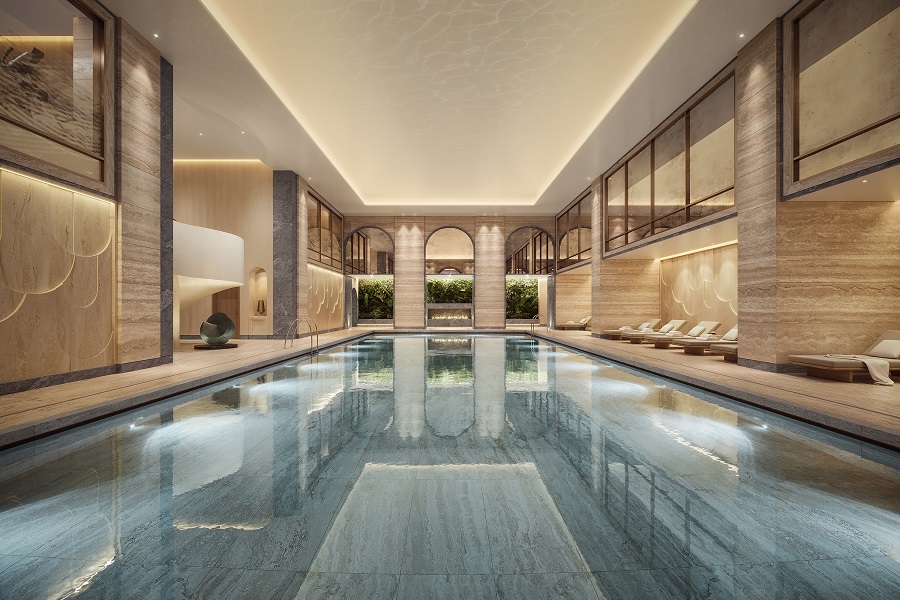
Raffles London at The OWO
WHAT IS YOUR ADVICE TO ASPIRING WELLNESS EXPERTS/SPA MANAGERS?
To be successful in this industry – whether as a spa manager or a wellness expert, therapist, trainer, or so forth – it really helps to have a strong understanding of the commercial side of the business. For example, how to generate revenue and income; how to create sales and marketing plans effectively; how to develop and build the commercial side of the business and manage the operational costs. Whether you’re an individual operator or managing a treatment spa, those principles are vital. As a young person starting out in the spa industry, putting this at the forefront of your education will benefit you greatly in the future.
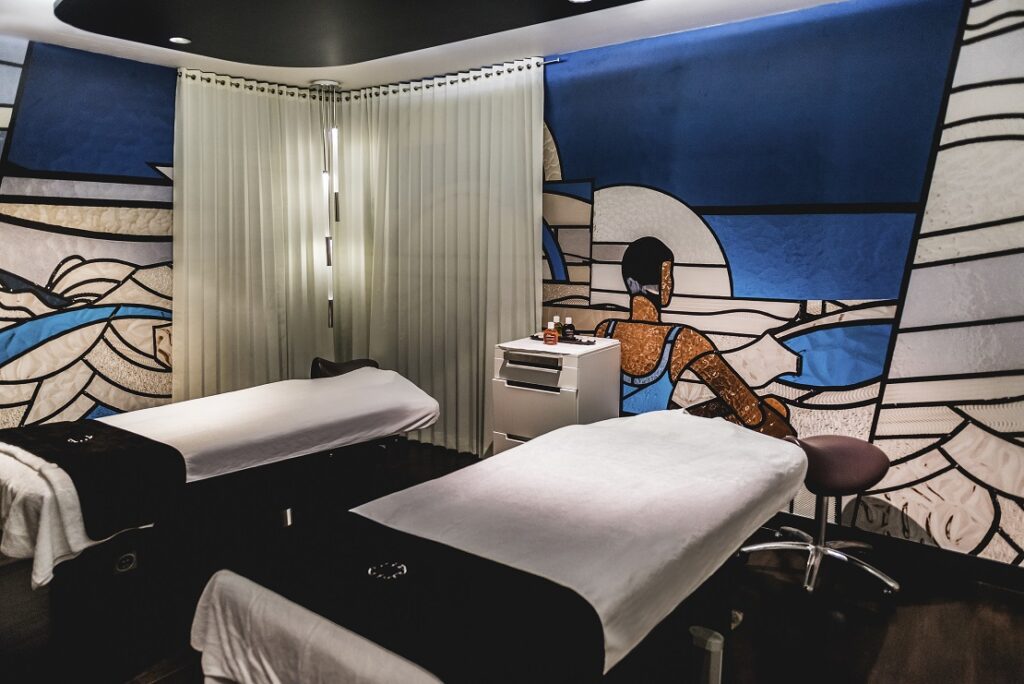
Hôtel Molitor Paris – MGallery © Sebastien Giraud
Empathetic leadership skills are so necessary – the ability to balance out the needs of team members against those of your delivery; to be a demonstrable leader who walks the walk, not just talks the talk. As leaders, we all make tough decisions because people will not always like the answers, but as long as you’re fair, open, and understanding, I think you’ll always do well.
Moving out of your comfort zone is essential if you want to develop yourself and your career. Whether it’s the type of job you do, your location, or the role, going beyond what is easy is vitally important to build the skills you need for more senior roles down the line.
Finally – continuously educate yourself, whether it’s with new experiences, researching your competitors, emulating those you admire, or reading books and journals both inside and outside your industry. As you expand your skillset, you will bring that knowledge and awareness back to your workplace, positioning you well for more responsibility and bigger roles.
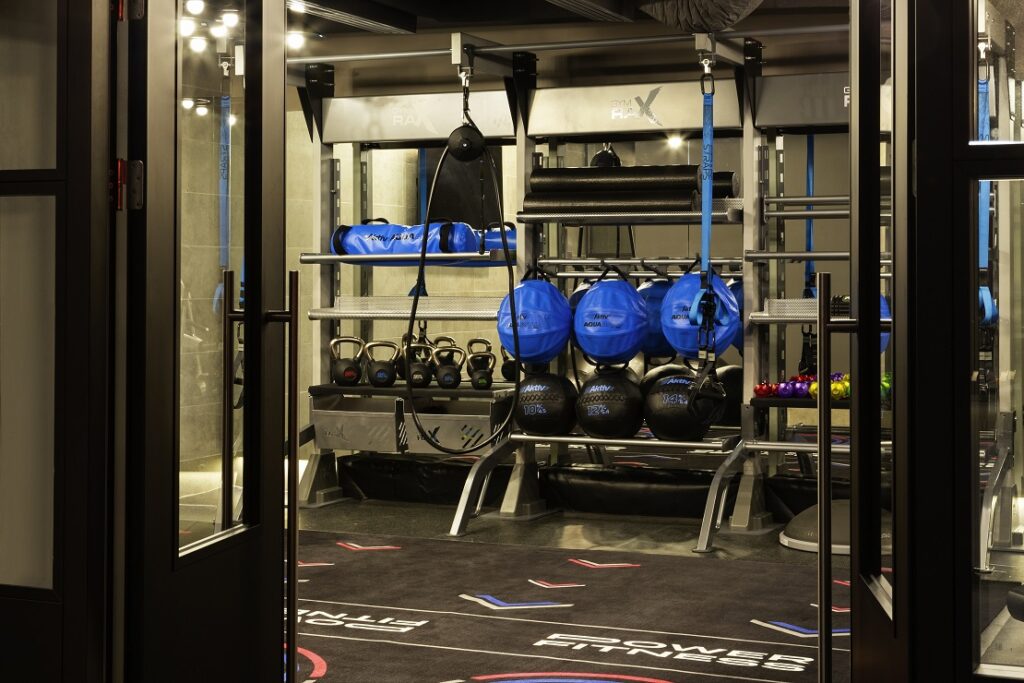
Pullman Paris Montparnasse © Arnaud Laplanche
DESCRIBE A REAL-LIFE EXPERIENCE THAT INSPIRED YOU.
I will never forget arriving in South Africa for the first time. It was the early 90s, landing in Johannesburg. Africa was unlike anything I had experienced before – the air, the atmosphere, the scents – it all held the promise of adventure and excitement. But the most extraordinary thing was the view of the horizon. At that altitude you can literally see the curve of the Earth’s surface against the sky. That was a profoundly emotional experience that only deepened my love for travel.
A few years on, I visited the Four Seasons in Berlin, and the guest experience was extraordinary. Everything was simple and yet also so humanistic in the way they related to guests. This gave me the impetus to join the hospitality industry myself, which I did, one year later.
Then just a few years ago, I had an unforgettable experience at Fairmont Banff Springs in Canada. Outdoors in a steaming hot tub, I was surrounded by the vast beauty of nature, facing the majestic Rocky Mountains. I was astounded by the simplicity and contentment of the moment. Viscerally, I understood the power that hospitality can contribute to well-being and how much more opportunity there could be in moving wellness out from the confines of the spa walls and into everything we do.
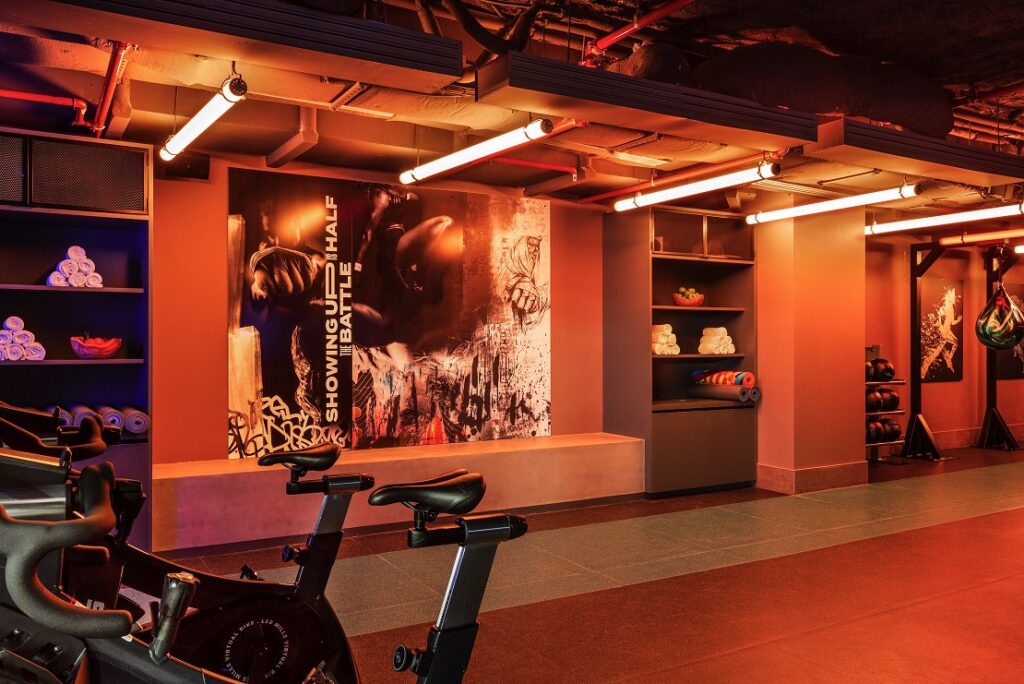
Pullman Paris Montparnasse © Arnaud Laplanche
WHAT MEMORABLE RESPONSES HAVE YOU HAD TO YOUR WORK SO FAR?
Many years ago, I was sent to Bodrum, Turkey to develop a wellness facility. During that time, we had to employ local people, and there were not many with experience in the wellness industry, so we focused on hiring for the right attitude. We formed a team of about 35 young and very passionate Turkish people who infused our team with a wonderful, natural attitude of hospitality we called Hoşgeldiniz.
We ended up being very successful, but the most touching part is that now in Turkey, many of the people in positions of spa leadership today, came from that group. Some have moved abroad, and we stay in touch. When I see them on LinkedIn or in the media, there’s always a sense of pride for that group, and the memories of that time. Since then, I’m fortunate to have several experiences of working as a team in a foreign location and we’ve had the ability to really impact people’s lives, so that’s a very emotionally resonant thing.
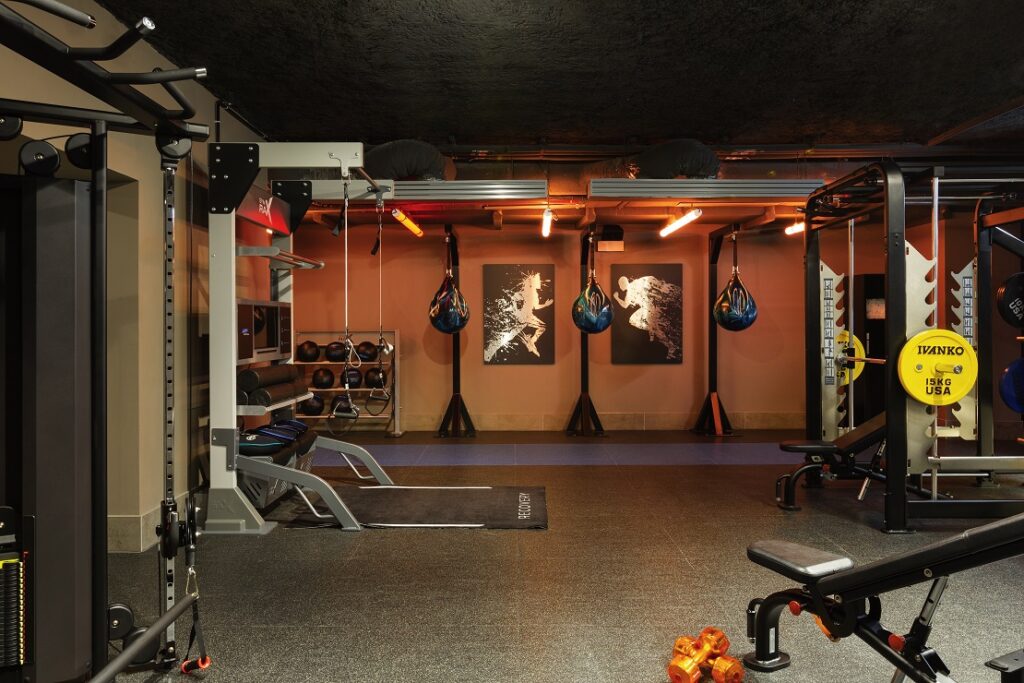
Pullman Paris Montparnasse © Arnaud Laplanche
WHAT MAKES ACCOR HOTELS STAND OUT FROM OTHER BRANDS YOU’VE WORKED IN?
Certainly, the incredible collection and selection of brands that Accor has around the world, is unparalleled. From ibis – an incredible, powerful brand, so well recognized – all the way up to the luxurious Orient Express trains coming in Italy and to Paris very soon – Accor has a massively broad range of experiences we can deliver to our guests.
Second, there is no company in hospitality right now that is more bold, dynamic and entrepreneurial than Accor. This is a company that is always positive and moving forward with boldness and swiftness. Accor’s fast-paced culture is rare among the industry and it’s a great strength. Third, there is a friendliness and a support network within Accor that is very strong. There’s always an element of camaraderie in hospitality, but at Accor, it’s even more so. We have people who have served the company for 20+ years – that’s a testament to the Accor organization and the way we develop and value our people.
BUILDING THE RIGHT TEAM IS CRUCIAL FOR A PROPERTY’S SUCCESS. WHAT ARE THE KEY SKILLS YOU LOOK FOR WHEN HIRING NEW EMPLOYEES?
Number one, hire for attitude. Skills can be acquired, but people are unique, and attitude is everything. Number two, hire based on your mission and vision. What’s the mission and vision for your company? What are your goals, what are your values? That is the comp set you need to consider when hiring – rather than focusing only on where someone has worked and how many years of experience they’ve had. Do their values and their vision and their thought process match that of the rest of the team and the organization? This is how you build a very strong team. Thirdly, diversity is so key. Talent shouldn’t always come from the same pool. Creating a mixture of people, personalities, and backgrounds creates the strongest dynamic and the best crack at achieving brilliance. Finally, I think it’s so important we give more young people a chance. In all industries really, I see young people struggling to get started and I think that’s a shame. Young people need to be given a chance to excel, while accepting that mistakes will be made, and failures will happen, and we will help them and mentor them along the way. I strongly believe we are not giving our young people enough chances to fail, to make mistakes, and to learn – which they simply must do if we expect them to develop and become great leaders.
Fortunately, despite the recent pandemic and economic challenges, now is a great time for us as an industry to reset, to look at how we bring our people on board, and how we value our people. It also presents a new opportunity for young people to get started in an industry that is poised for an upswing and will continue to grow and to flourish.


